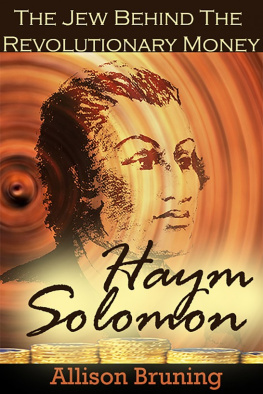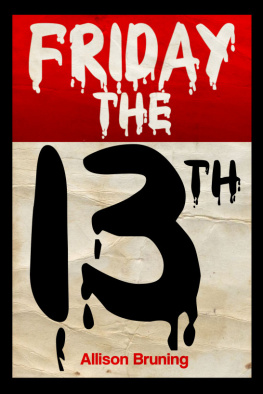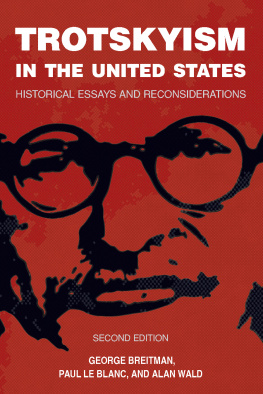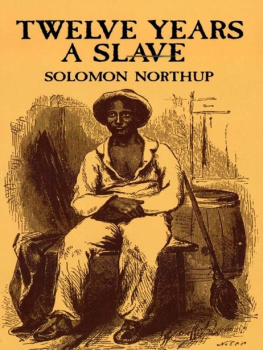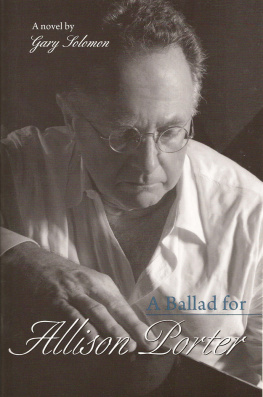Allison Bruning - Haym Solomon: The Jew Behind the Revolutionary Money
Here you can read online Allison Bruning - Haym Solomon: The Jew Behind the Revolutionary Money full text of the book (entire story) in english for free. Download pdf and epub, get meaning, cover and reviews about this ebook. year: 2016, publisher: Crimson Sparrow, genre: Politics. Description of the work, (preface) as well as reviews are available. Best literature library LitArk.com created for fans of good reading and offers a wide selection of genres:
Romance novel
Science fiction
Adventure
Detective
Science
History
Home and family
Prose
Art
Politics
Computer
Non-fiction
Religion
Business
Children
Humor
Choose a favorite category and find really read worthwhile books. Enjoy immersion in the world of imagination, feel the emotions of the characters or learn something new for yourself, make an fascinating discovery.
- Book:Haym Solomon: The Jew Behind the Revolutionary Money
- Author:
- Publisher:Crimson Sparrow
- Genre:
- Year:2016
- Rating:5 / 5
- Favourites:Add to favourites
- Your mark:
- 100
- 1
- 2
- 3
- 4
- 5
Haym Solomon: The Jew Behind the Revolutionary Money: summary, description and annotation
We offer to read an annotation, description, summary or preface (depends on what the author of the book "Haym Solomon: The Jew Behind the Revolutionary Money" wrote himself). If you haven't found the necessary information about the book — write in the comments, we will try to find it.
Haym Solomon: The Jew Behind the Revolutionary Money — read online for free the complete book (whole text) full work
Below is the text of the book, divided by pages. System saving the place of the last page read, allows you to conveniently read the book "Haym Solomon: The Jew Behind the Revolutionary Money" online for free, without having to search again every time where you left off. Put a bookmark, and you can go to the page where you finished reading at any time.
Font size:
Interval:
Bookmark:
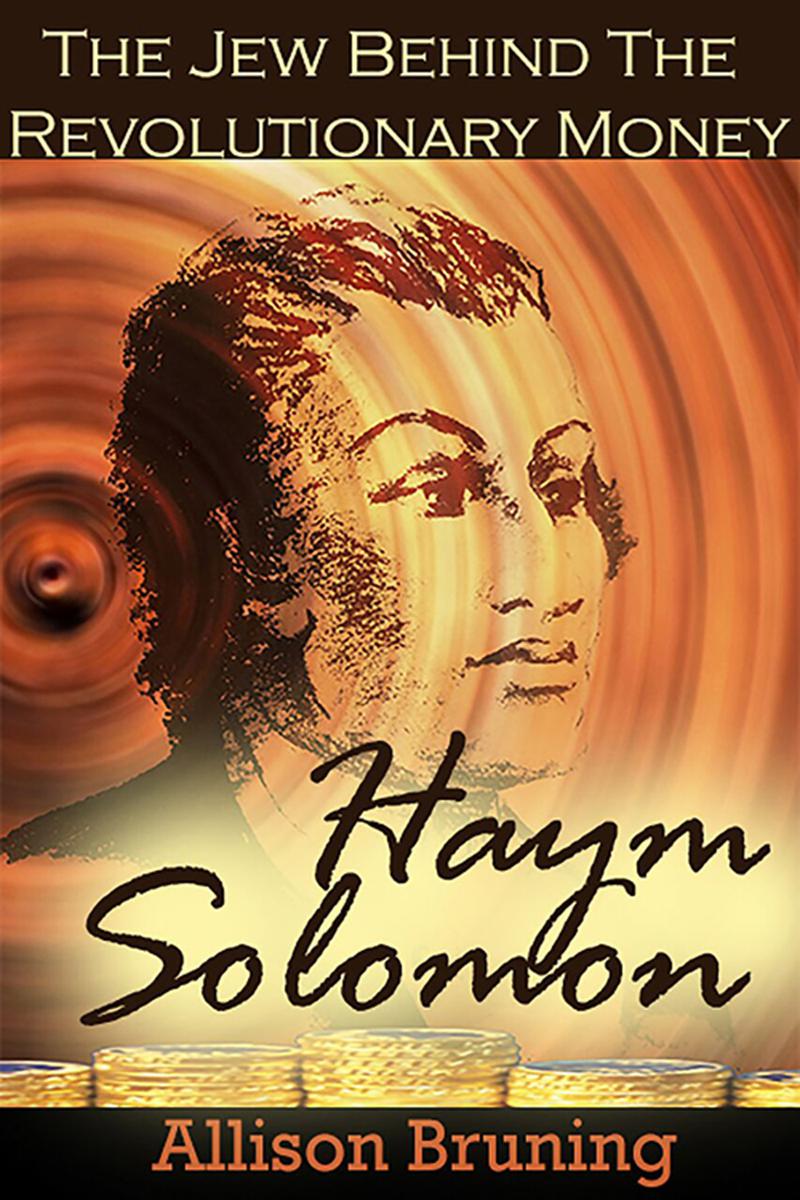
The Jew
Behind The Revolutionary Money:
Haym Salomon
By Allison Bruning
Published by Marfa House
Copyright 2016
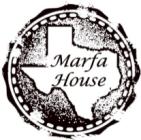
Marfa House
Marfa, Texas
Marfa House
Marfa, Texas
The Jew Behind The Revolutionary Money: HaymSalomon
Published by Marfa House
Smashwords Edition
All Rights Reserved
Copyright 2016 by Allison Bruning
1st Edition
In accordance with the U.S. Copyright Act of 1976,the scanning, uploading, and electronic sharing of any part of thisbook without the permission of the publisher constitute unlawfulpiracy and theft of the authors intellectual property. If youwould like permission to use this authors material work other thanfor reviews, prior written permission must be obtained bycontacting the publisher. Thank you for your support of theauthors rights.
This book is licensed for your personal enjoymentonly. This book may not be re-sold or given away to other people.If you would like to share this book with another person, pleasepurchase an additional copy for each recipient. If you're readingthis book and did not purchase it, or it was not purchased for youruse only, then please purchase your own copy. Thank you forrespecting the hard work of this author.
ISBN: 978-1-946072-05-4
Dedication:
To the family of HaymSalomon: Thank you for your ancestors' generosity.
To the descendants ofAmerica's patriots: Thank you for your ancestors' service.
Table of Contents
The Jew Behind The RevolutionaryMoney: Haym Salomon
At the start of the American Revolutionary War,Great Britain had obtained rank as a global military and economicsuperpower. Great Britain had perfected its military strength byfighting the Nine Years War (1688-97), the War of SpanishSuccession (1702-13), the War of Austrian Succession (1739-48) andthe Seven Years War (1756-63). Now her rebellious colonies in theNew World were starting another war. There were several factorsthat led up to the American Revolutionary War. One of the keyissues was financial.
From 1733 to 1763, Great Britain operatedeconomically on the mercantile system. Under this system, colonistswere forbidden to trade with any nation other than Great Britain.The goal of the system was to make the British Empire and hergovernment rich. The colonists viewed this regulation as limitingtheir own finances. France, Spain and other countries had coloniesin the New World, and had their own trade routes, as well. Toensure that the colonists complied with the mercantile system,Great Britain enacted the Navigation Acts. The Navigation Actsblocked colonial trade with the Dutch, French and Spanish. Thecolonists tried their best to avoid the acts. The Navigation Actswere just one of many ways Great Britain limited the financialresources of the colonies.
During the Seven Years War, Great Britain did notexpect the colonists to generate enough of an income to providefinancial resources to the monarchy. At the conclusion of the war,Great Britain changed their view on using colonial finances torelieve the national debt the war had caused. The monarchy hadspent 200,000 pounds annually in order to protect the colonists andthe West Indies from Spanish and French invasions. To meet thedemand, British Parliament increased colonial taxes and created newacts of taxation over the years. Back in the colonies, colonistswere infuriated. Most people believe the colonists were upset dueto the raise in taxes. It was never the raise in taxes that hadupset our forefathers but that there was taxation withoutrepresentation. The colonists felt they should have representationin British Parliament. British Parliament disagreed. By notallowing the colonists to have a say over matters concerning thecolonies, parliament was displaying who was really in charge of thecolonies. London replied to the colonists request forrepresentation, stating the colonists had virtual representation.Virtual representation meant members of Parliament spoke on behalfof all British subjects, not just the ones who had elected them.Since the colonists were British subjects, they had representation.Parliaments position in the matter had critics on both sides ofthe Atlantic Ocean. In March of 1766, British Parliament tried tosettle the matter by passing the Declaration Act. The DeclarationAct declared that Parliament had full power and control to makewhatever laws it deemed necessary for all the colonies in the NewWorld.
Although there were a series of skirmishes up anddown the American coastline, the Revolutionary War didn'tofficially begin until April 19, 1775, with "The Shot Heard Aroundthe World." At the advent of the Revolutionary War, Great Britainlost control of all colonial trade. The colonists were quick toabolish the restrictions their mother country had placed upon them.With new-found freedom to trade with whomever the colonistspleased, the colonial trade market flourished. The market alsoflourished with the help of American pirates stealing resourcesfrom British merchant vessels.
The British believed the colonial rebellion would beshort-lived. But the colonists were determined to win theirfreedoms and birth a nation. The war for independence lasted 8years and 137 days, ending on September 3, 1783. The drawn out warhad nearly bankrupt both sides of the conflict. The financialresources of the colonies began to deteriorate following theirvictory at the Battle of Saratoga on October 17, 1777. Up untilthis time, the thirteen states did not financially supportCongress. Each state had its own currency that had to compete withother currencies. To make matters worse, British spies hadinfiltrated the colonies and had begun to distribute counterfeitcolonial dollars in order to destroy the colonial economy. TheBritish efforts had been successful in causing a rapid depreciationin the value of colonial money. The war had caused a blow to thecolonial market, as well, with inflation, destruction of propertyand the deaths of able-bodied men. The British also attackedAmerican vessels and confiscated any goods that they weretransporting, claiming the cargo as British property. Any profitsthat were made by colonial merchants were sent to help fund the warefforts. A popular saying back then summed up the situation well:"Anything of little value is not worth a continental." By 1780,Congress had released $400 million in paper money to the colonialtroops. Congress had tried to help the economic situation byimposing economic reforms that they hoped would end the inflation.Their efforts failed. It quickly became apparent to our youngnation that they were going to need financial support.
Haym Salomon was born on April 7, 1740, in Leszno,Poland to Shepardi Jewish parents from Portugal. Haym spent much ofhis life traveling around Western Europe and England. Although helearned Hebrew in his youth, his adventures granted him the abilityto learn a variety of languages. His fluency in multiple languagesserved him well. In 1770, Haym returned to Poland, where he stayeduntil the Polish partition, at which time he was forced to flee forhis life. Haym immigrated to New York in 1772, where, through hiseducation and his fluent ability to speak ten languages, he becamea successful merchant and dealer of foreign securities. He becamefriends with Alexander MacDougall, who was the leader of the NewYork Sons of Liberty. Through their acquaintance, Haym wasintroduced to the secret revolutionary organization and became amember. This was a bold move for Haym to make, in that New York wasthe central hub of British power in the colonies, and he wasalready doing business with wealthy loyalists (those who were loyalto Great Britain). When the American Revolutionary War broke out inNew York, Haym had already secured a contract to supply the patriottroops in central New York. During the Great Fire of New York onSeptember 9, 1776, Haym Salomon was arrested by British authoritieson grounds of espionage. He was imprisoned and tortured on aBritish vessel for eighteen months. The British noticed Haym'sability to fluently speak 10 languages. They offered him a pardonif he would serve as a translator for their dealings with theHessian mercenaries. Haym agreed. Instead of aiding the British, heused his skills to help other prisoners escape, and he encouragedthe Hessians to desert their plans to aid the British. He went backto his business and continued to aid the patriots. In September1778, Haym was arrested again by the British for hispro-revolutionary activities. The British charged him with treasonand sentenced him to death by hanging. With the help of hisfriends, he was able to escape. He fled with his family to thepatriot capital of Pennsylvania, where he arrived penniless. Haymimmediately went back to work and built up his business. Haymcontinued to aid the patriots.
Next pageFont size:
Interval:
Bookmark:
Similar books «Haym Solomon: The Jew Behind the Revolutionary Money»
Look at similar books to Haym Solomon: The Jew Behind the Revolutionary Money. We have selected literature similar in name and meaning in the hope of providing readers with more options to find new, interesting, not yet read works.
Discussion, reviews of the book Haym Solomon: The Jew Behind the Revolutionary Money and just readers' own opinions. Leave your comments, write what you think about the work, its meaning or the main characters. Specify what exactly you liked and what you didn't like, and why you think so.

